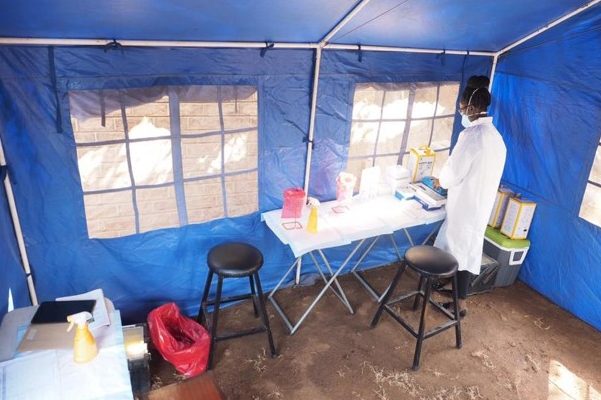In 2020, as the world collectively faced the ever-changing demands of the COVID-19 pandemic, ICAP at Columbia University quickly responded by conducting two baseline SARS-CoV-2 surveillance activities in Malawi and Cameroon. With funding from the U.S. Centers for Disease Control and Prevention (CDC), ICAP worked with ministries of health in each country to carry out time-sensitive SARS-CoV-2 surveillance studies to better understand the trajectory of the pandemic.
In Malawi, between August-October 2020, ICAP implemented sentinel surveillance in 14 private and public health facilities across eight disricts in three regions. Individuals were screened for COVID-19 symptoms in out-patient facilities based on national and CDC guidelines. Every person that was classified as symptomatic was consented to participate in the surveillance exercise including a nasopharyngeal swab, a questionnaire (including questions on current/past symptoms, possible exposures, other risk factors, health seeking behavior knowledge and attitudes about COVID-19), and a blood draw for future serology testing. Seemingly healthy individuals were also randomly selected to understand the asymptomatic spread of COVID-19 among those not presenting identifiable symptoms as defined by existing guidelines. Given a limited time frame and resources, this surveillance activity was focused on understanding COVID-19 prevalence in purposively selected health facilities. In March 2021, the ICAP team conducted serological testing to understand the prevalence of SARS-CoV-2 antibodies amongst the participants.
In Cameroon, a seroprevalence study was conducted across the ten regions of the country from October-December 2020. In each region’s capital, three community-based venues, such as markets and transportation hubs, were selected as high-traffic focal points where the research team could survey people of various ages, sex, and population types. That way, the study would have a representative sense of the number of people across Cameroon with COVID-19 antibodies.
“To let communities know what we were doing and why we were here, we had peer mobilizers use loudspeakers and share more information about the study,” said Karampreet Sachathep, PhD, deputy director of Survey Integration for the Population-based HIV Impact Assessment (PHIA) Project and principal investigator of the Malawi and Cameroon surveillance activities. “This included details on how participants would consent to blood draw, learn about their previous exposure to COVID-19, and be provided more COVID-19 related information. Participants were made aware that the serology test results were not a clinical diagnosis but they could receive their test results through a callback number.”
In both studies, the role of the laboratory was critical.
In Malawi and Cameroon, ICAP trained its laboratory partners from the Ministry of Health and partner organizations on how to handle, test, and conduct data cleaning for serology tests which detect SARS-CoV-2 antibodies. ICAP was fully responsible for capacity building to ensure all serology tests were conducted with precision to inform national and subnational SARS-CoV-2 seroprevalence estimates.
“Though our main role was to do surveillance, there was an emphasis on lab-focused capacity building through serology testing,” said Sachathep. “These tests provided a baseline for COVID-19 seroprevalence in Malawi and Cameroon at the height of the pandemic when we had very little laboratory-confirmed data. As the epidemic continues to change across most nations, including African nations, it is extremely important for us to continue this work and shape the future of the COVID-19 response.”
About ICAP
A major global health organization that has been improving public health in countries around the world for nearly two decades, ICAP works to transform the health of populations through innovation, science, and global collaboration. Based at Columbia Mailman School of Public Health, ICAP has projects in more than 30 countries, working side-by-side with ministries of health and local governmental, non-governmental, academic, and community partners to confront some of the world’s greatest health challenges. Through evidence-informed programs, meaningful research, tailored technical assistance, effective training and education programs, and rigorous surveillance to measure and evaluate the impact of public health interventions, ICAP aims to realize a global vision of healthy people, empowered communities, and thriving societies.








